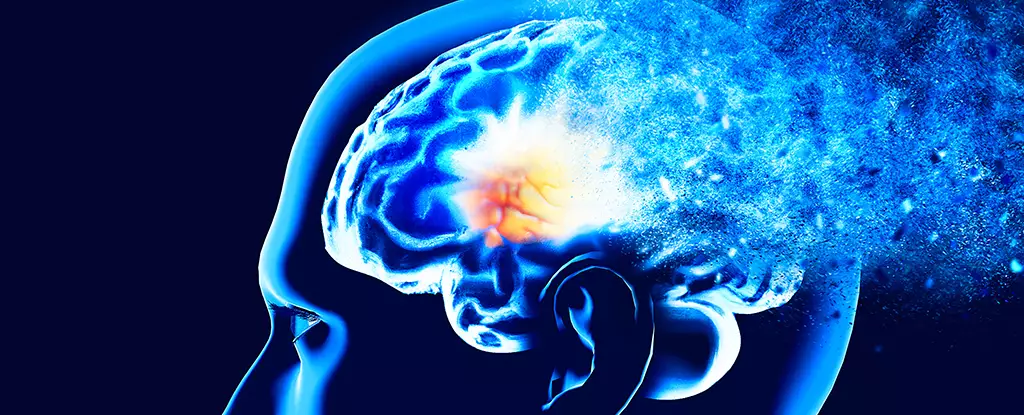While many view dementia as a condition that afflicts the elderly, young-onset dementia (YOD) obscures a more troubling reality: it is not so uncommon among those under 65. With hundreds of thousands receiving a YOD diagnosis annually, a recent study published in December 2023 by a team led by epidemiologist David Llewellyn at the University of Exeter highlights an urgent need to address this issue. Traditionally, much of the discourse surrounding dementia has fixated on its genetic underpinnings, but this groundbreaking research shifts focus to lifestyle and health factors that could significantly alter the landscape of risk for this debilitating condition.
Redefining the Causes: Beyond Genetics
The study analyzed a staggering pool of over 356,000 individuals, uncovering 15 lifestyle and health-related factors that correlate with an increased risk of YOD. These findings challenge the long-held belief that genetics alone dictates our fate—showing that socioeconomic status, social isolation, and even physical health directly influence the development of the condition. It’s essential to stress the importance of this redefined narrative; by shifting attention to modifiable risk factors, we open doors for preventative measures that could truly change lives. Highlighting the interplay of these dimensions offers hope that we can proactively reduce our vulnerability to such cognitive decline.
This introduces an imperative dialogue about how we not only live but orchestrate our social environments. The study’s take on aspects like hearing impairment, diabetes, and heart disease points to a more holistic understanding of health. We cannot compartmentalize our well-being; mental, physical, and social health are inextricably linked. This interconnectedness is even more pronounced when we consider the socio-economic divides that exacerbate the prevalence of YOD among disadvantaged communities.
Alcohol: A Double-Edged Sword?
Intriguingly, the findings also delve into the complex relationship between alcohol consumption and YOD. While abuse elevates risk, a surprising correlation emerges—moderate to heavy drinking appears to lower the risk, likely due to the healthier lifestyle typically adopted by this demographic. This observation complicates the narrative around alcohol, challenging us to reconsider entrenched health dogmas. It invites us to probe deeper into our societal norms surrounding alcohol consumption and health.
Nonetheless, we must exercise caution: attributing positive outcomes to alcohol consumption could lead down a dangerous path. The potential benefits should not negate the myriad of harms associated with excessive drinking or normalization of its consumption, particularly within populations already vulnerable due to health or socio-economic disparities.
Education and Mental Well-Being: Keys to Mitigation
What stands out is the striking connection between education, health literacy, and the risk of YOD. Higher levels of formal education were correlated with lower risk, suggesting that knowledge empowers individuals to make informed lifestyle choices conducive to long-term brain health. This aspect demands urgent attention from policymakers and educators alike—creating robust frameworks that prioritize accessible education can serve as a pivotal strategy in mitigating YOD risks.
The mental health dimension, encompassing factors like chronic stress and loneliness, also requires our immediate focus. As the research suggests, nurturing social connectedness and addressing mental health barriers can enhance resilience against cognitive decline. Rather than sidestepping these critical issues, we need to cultivate environments that prioritize emotional support and community engagement. Mental well-being should not be an afterthought but an essential part of our collective health strategy.
A Glimmer of Hope in the Fight Against Dementia
As we dissect the implications of these findings, a sense of optimism emerges. They form a compelling argument for better acoustic policies and community health initiatives aimed at reducing the prevalence of modifiable risk factors associated with YOD. We face an opportunity to reshape our societal understanding of dementia away from a genetic inevitability to a complex interplay of manageable factors.
This fresh lens brings urgency and agency to the conversation. It is not merely about managing dementia but about fostering healthier lifestyles that may prevent its onset altogether. As neuroscientist Stevie Hendriks rightly points out, the societal impacts of YOD are profound—not just for those diagnosed but for their families, careers, and communities. This study offers a beacon of hope that aligns well with a more progressive understanding of health—one that asserts we can actively shape our cognitive futures through informed choices and robust societal structures.



Leave a Reply